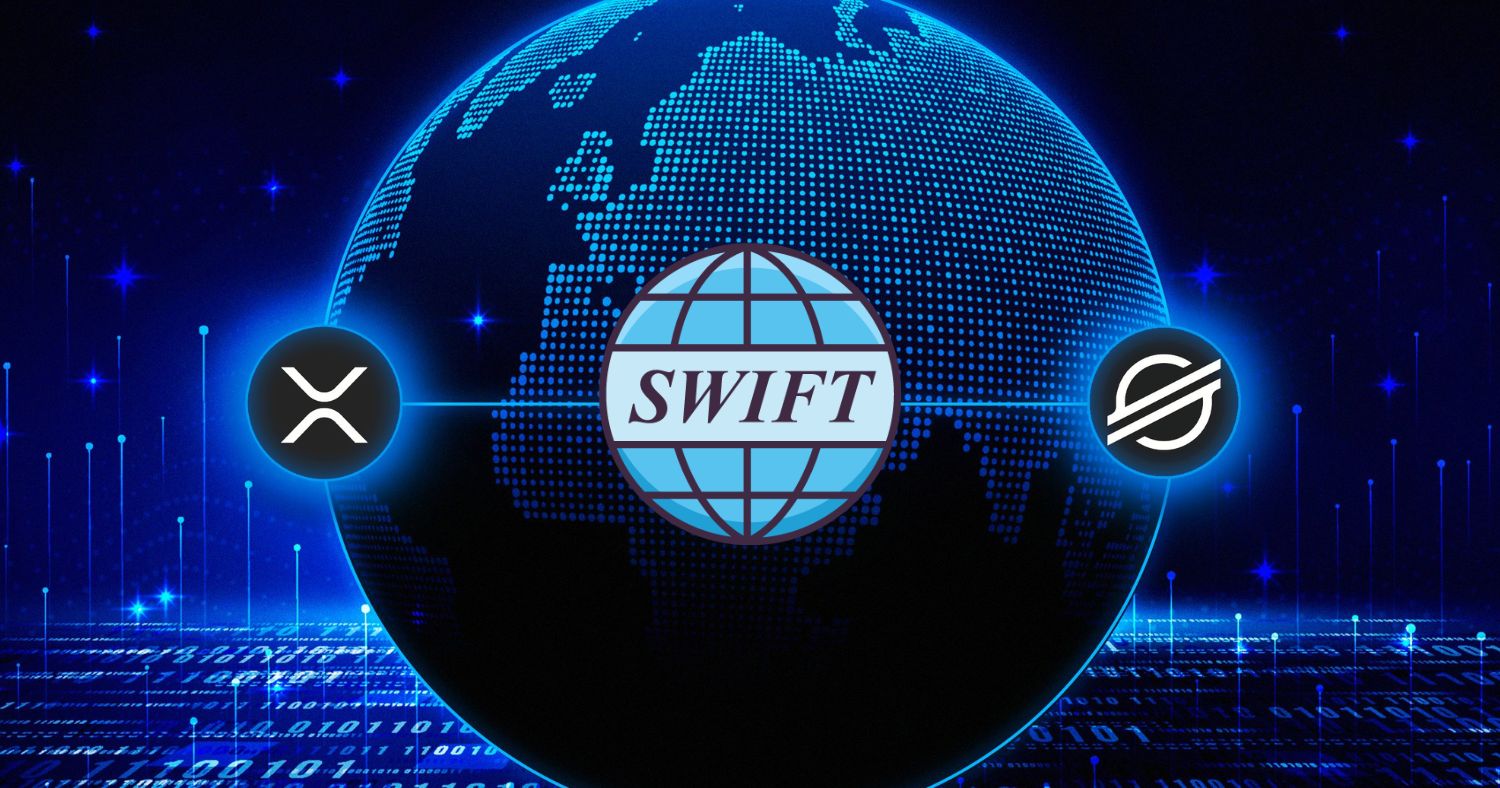SWIFT, the global financial messaging network and foundational pillar of international banking, has quietly acknowledged the growing influence of blockchain-based payment networks like Ripple (XRP) and Stellar (XLM). Revelations from internal SWIFT presentations suggest these crypto innovators are being closely watched as potential disruptors to the deeply entrenched correspondent banking system.
Ripple and Stellar featured in SWIFT presentation during discussion of replacing traditional correspondent banking 😏🔑
— SMQKE (@SMQKEDQG) August 15, 2025
👇 pic.twitter.com/iZrZYOyuz4
For decades, correspondent banking has facilitated cross-border transactions, acting as the complex web that connects disparate financial institutions worldwide. However, this system is often criticized for its inefficiencies, including high costs, slow settlement times, and a lack of transparency. The emerging competitive landscape, particularly from digital-native solutions, is now forcing a re-evaluation.
SWIFT’s Internal Assessment
Crypto researcher SMQKE recently shared images from a SWIFT-branded presentation, offering a rare glimpse into the organization’s internal discourse on industry competition. The slides frame the challenge through the lens of “disruptive innovation,” a concept popularized by Harvard Business School professor Clayton Christensen. This theory posits that while technology acts as an enabler, it is a new business model that truly drives transformative change. The presentation echoes this by citing examples of industries disrupted by entities that don’t own the traditional assets associated with their sectors.
The presentation outlines stringent criteria for any alternative system aiming to disrupt correspondent banking. Such a system must achieve global reach across all countries and currencies, provide a viable alternative to the traditional Nostro/Vostro accounts for settlement, secure regulatory support, justify implementation costs through measurable savings, and deliver superior customer service.
A network diagram within the presentation illustrates the intense competition in cross-border payments. Alongside legacy providers like Western Union and PayPal, newer entrants like Ripple and Stellar are prominently featured. They are grouped with other digital payment innovators such as TransferWise, MoneyGram, and Payoneer. Crucially, a vertical label on this slide reads “Correspondent Banking disintermediation,” indicating that SWIFT views these players as part of a broader trend towards bypassing or streamlining traditional banking pathways.
Ripple and Stellar’s Strategic Positioning
Within this competitive map, Ripple and Stellar are highlighted as offering faster and more direct alternatives for cross-border settlement. Their inclusion alongside major remittance companies and digital payment providers underscores SWIFT’s recognition of their existing influence in the sector.
However, the presentation’s cautious assessment — “not yet” achieving full disruption — reflects that SWIFT still considers the correspondent banking model intact, despite the undeniable growth of alternative solutions. This nuanced perspective suggests that while SWIFT acknowledges the competitive pressure, it also sees the significant hurdles involved in fundamentally overhauling a global financial system built over centuries.
Industry Commentary and Future Outlook
Denis Samkov, an X user and industry observer, provided further context to SMQKE’s findings. He interpreted the mention of Ripple and Stellar as clear evidence of an ongoing shift in payment systems. Yet, Samkov cautioned that entrenched banking practices are inherently resistant to rapid transformation. He noted that despite the current buzz around stablecoins and other digital assets, traditional financial structures are unlikely to be replaced in the immediate future.
The insights from SWIFT’s internal documents are significant. They confirm that even the most established players in global finance are actively observing and analyzing the potential impact of blockchain-based innovations. While SWIFT does not yet classify correspondent banking as disrupted, it unequivocally recognizes that alternative networks like Ripple and Stellar are creating genuine competitive pressure, signaling a transformative era for international payments.
Disclaimer: This article is provided for informational purposes only and does not constitute financial advice. Investors should always conduct their own thorough research and consult with a qualified financial advisor before making any investment decisions in cryptocurrencies, which are highly volatile and speculative assets.
You might be interested in:




